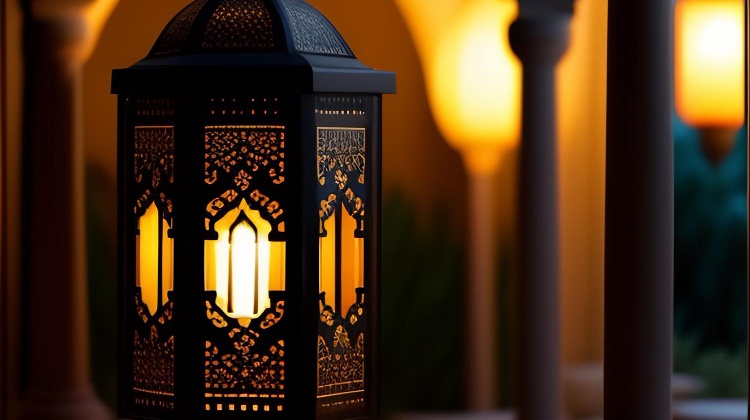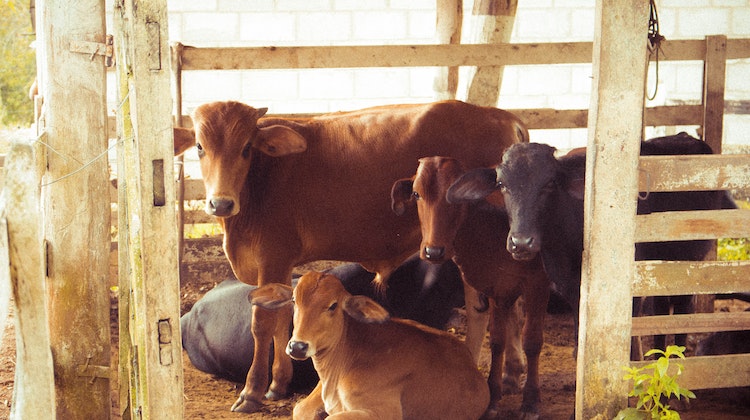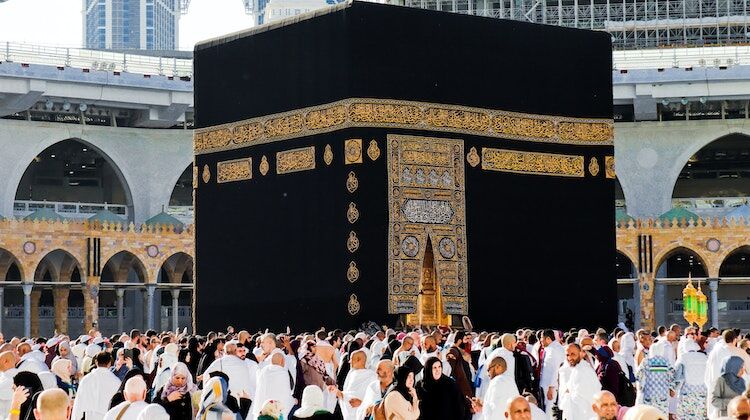Hari Raya Haji/Eid al-Adha: understanding the meaning, history, and importance of the festival of sacrifice
Eid al-Adha, also known as Hari Raya Haji or Eid al-Adha, is a religious festival celebrated by Muslims all over the world.
Hari Raya Haji is a religious festival celebrated by Muslims all over the world. In this article, we will explore the history, meaning, and importance of Hari Raya Haji/Eid al-Adha, going deep into its definition and story, significance, observance as well as the rules of sacrifice, as well as the benefits of Qurban in Islam.
What is the definition and history of Hari Raya Haji/Eid al-Adha
When do Muslims celebrate Eid Al Adha? Hari Raya Haji, also known as Aidiladha (Arabic: عيد الأضحى, Eid Al-Adha), falls on the tenth day of the month of Zulhijjah, the last month in the Islamic calendar. The date of 10 Zulhijjah is significant in Islamic history as it marks the occasion when Prophet Adam and his wife Hawa were expelled from paradise and descended to Earth before reuniting at the plain of Arafah, outside the city of Mecca.
Hari Raya Haji is also celebrated to commemorate the pilgrimage of Muslims known as Hajj and to reflect on the journey of Prophet Muhammad SAW to Mecca. According to the fifth pillar of Islam, all capable and financially able Muslims are obligated to perform the Hajj at least once in their lifetime.
Additionally, the act of sacrifice performed on Hari Raya Aidiladha serves as a remembrance of the story of Prophet Ibrahim a.s.'s willingness to sacrifice his son, Prophet Ismail a.s, as an act of obedience to Allah SWT. According to Islamic history, Ibrahim received a divine command to sacrifice his beloved son, Prophet Ismail a.s. As a testament to his unwavering faith and obedience, Prophet Ibrahim a.s. was prepared to carry out the sacrifice. However, Allah replaced Prophet Ismail a.s. with a male sheep, ultimately saving Prophet Ismail a.s.'s life. Muslims commemorate this event as a reminder of the importance of piety, faith, and obedience in Islam. This celebration holds significant religious and cultural importance and is observed with great joy and reverence by Muslims worldwide.
Similar to Hari Raya Aidilfitri, on Hari Raya Haji, Muslims are encouraged to wear their most beautiful and festive clothing, as well as use perfumes. Muslims perform a voluntary prayer called the Hari Raya Sunnah prayer, consisting of 2 units of prayer with 7 takbirs in the first unit and 5 takbirs in the second unit.

Significance and importance of Eid al-Adha
Eid al-Adha holds deep religious and spiritual importance for Muslims. It is a time to reflect on the values of sacrifice, obedience, and trust in God's will. The festival serves as a reminder of the ultimate submission to God exemplified by Prophet Ibrahim a.s.'s willingness to sacrifice his son. It emphasizes the importance of selflessness, humility, and gratitude. Muslims celebrate Eid al-Adha as an occasion to strengthen their faith, seek forgiveness, and show compassion and generosity to others, particularly through acts of charity and sharing.
Practices During Eid al-Adha
i. Fasting and Prayer
Unlike the month of Ramadan when all Muslims are required to fast every day from sunrise to sunset for a whole month, fasting on Hari Raya Haji is usually observed on the eve of the celebration (known as Wukuf) and is not obligatory. On the day of the celebration, Muslims gather at the mosque for congregational prayers before proceeding with the act of qurban which is also known as sacrifice.
ii. Qurban Practice
On the 10th of Zulhijah, all Muslims who are not performing the Hajj celebrate Hari Raya Aidiladha. Sacrifice is one of the most important rituals during Hari Raya Haji. This act of worship is considered sunnah muakkad (highly recommended but not obligatory) and can be performed individually or with others. Muslims who are financially capable are encouraged to perform the sacrifice.
Qurban refers to both the act of sacrifice and the livestock that is slaughtered during Hari Raya Aidiladha. It signifies the offering of certain animals as a means of drawing closer (taqarrub) to Allah SWT at specific times. Qurban is also understood as the sacrificial animals that are slaughtered on the Day of Nahar with the intention of seeking closeness to Allah SWT. (Guidelines of the Malaysian Islamic Development Department Number 2 of 2013: Guidelines for the Implementation of Sacrifice)
The ritual of sacrifice begins by facing the animal to be sacrificed towards the Qiblat and reciting prayers. The throat of the animal is then swiftly slit to ensure a quick death, usually within a minute. The animal is then cleaned, and its meat is cut, divided, and distributed.
Since the sacrifice signifies the offering of something valuable, livestock such as sheep, goats, or cattle are commonly chosen. The person performing the sacrifice keeps one-third of the meat, while the remaining two-thirds are shared with friends, neighbors, and the poor.

Observance and Rules of Sacrifice
The slaughtering of sacrificial animals, whether it be goats, cows, or camels, can only be done after the Eid al-Adha prayer until the end of the days of Tashriq. In addition, participants in the sacrifice should be aware of certain prohibitions that need to be observed in order to maximize the rewards of the sacrifice.
When the month of Zulhijjah begins (1st of Zulhijjah), it is recommended for those who intend to perform the sacrifice not to cut their hair on their heads, faces, or bodies, nor to trim their nails until they have completed the act of slaughtering their sacrificial animals.
This instruction comes from the statement of the Prophet Muhammad (peace be upon him) who said:
إِذَا دَخَلَتِ الْعَشْرُ وَأَرَادَ أَحَدُكُمْ أَنْ يُضَحِّيَ فَلاَ يَمَسَّ مِنْ شَعَرِهِ وَبَشَرِهِ شَيْئًا
Meaning: When the ten days (early days of Zulhijjah) have begun and one of you intends to perform the sacrifice, then let him not touch his hair or skin. Riwayat Muslim (1977)
In conclusion, Hari Raya Haji/Aidiladha is a day for Muslims to commemorate the sacrifice and obedience of Prophet Ibrahim a.s. and his trust in Allah. Eid al-Adha also serves as a reminder of the importance of gratitude, charity, and unity in the Muslim community. It provides an opportunity for Muslims to deepen their faith, seek closeness to Allah, and show kindness and compassion to others, encompassing the teachings and values of Islam.
